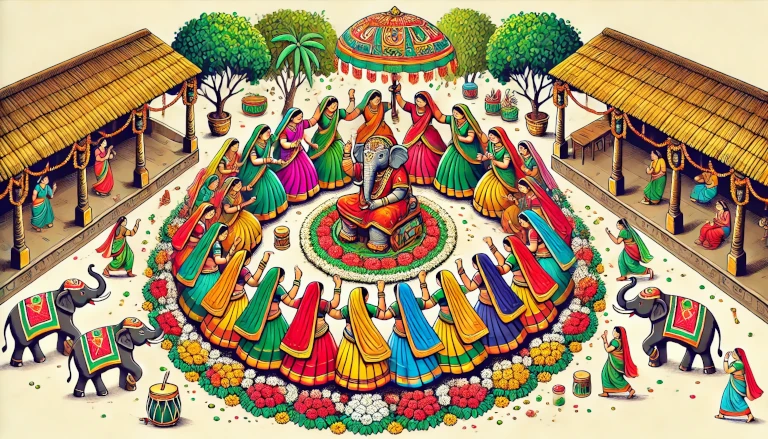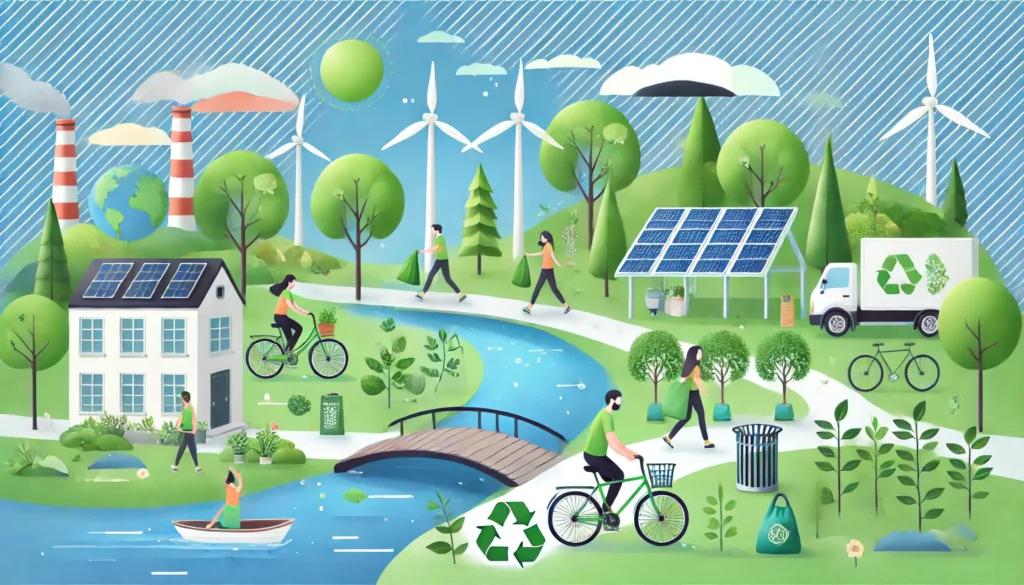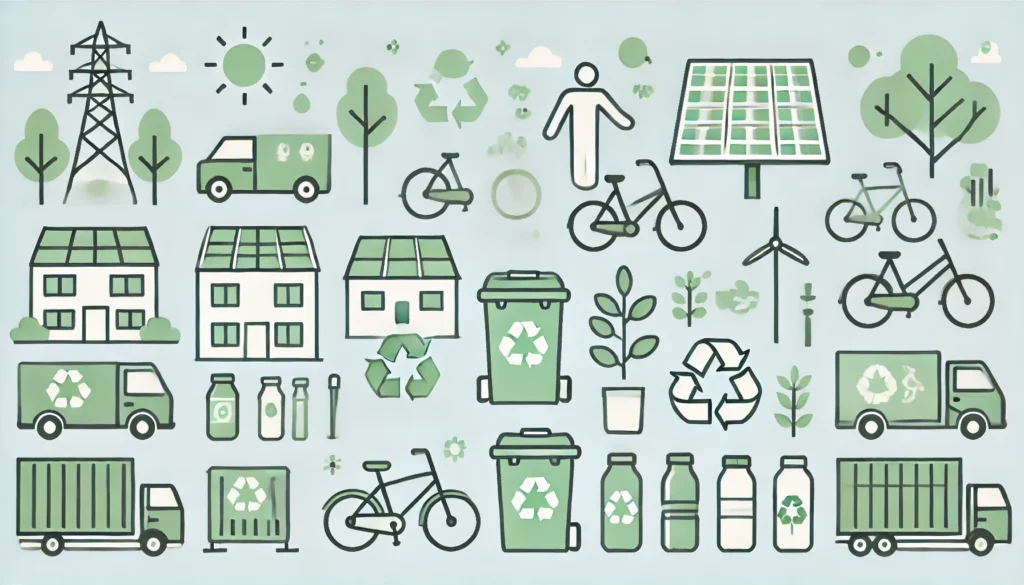Bhondala, also known as Hadga or Bhondlya, is a unique cultural celebration in the state of Maharashtra that showcases a deep connection to agriculture and ancient traditions. This festival, celebrated mainly by young girls and women, takes place during the Ashwin month of the Hindu calendar, typically in September or October, marking the end of the monsoon season. Bhondala is characterized by traditional songs, dance, and a sense of community, with strong links to agricultural cycles and the worship of nature.
In this post, we will explore the ancient and agricultural significance of Bhondala, uncovering how this tradition reflects the values of sustainability, gratitude, and community bonding.
What is Bhondala? 🌻
Bhondala is a traditional post-monsoon festival where young girls gather to celebrate the onset of the harvest season. It is a celebration of nature’s bounty, and participants express gratitude for the successful end of the monsoon rains, which are crucial for crop growth in agrarian societies. The festival includes singing and dancing around a clay or stone elephant, which symbolizes prosperity and fertility.
The highlight of Bhondala is the unique traditional songs sung in Marathi, reflecting the joy of the season and the agricultural roots of the community. These songs often include references to farming, nature, and village life, making Bhondala a meaningful celebration for people with close ties to agriculture.
Agricultural Significance of Bhondala 🌾
Bhondala’s agricultural significance is closely tied to its timing and the activities associated with it. Here are some key aspects that connect Bhondala to agriculture:
1. Celebration of the Harvest Season 🌾🌧️
Bhondala is celebrated right after the monsoon season, which is a crucial period for farmers in Maharashtra. The rains bring much-needed water for crops, which are now ready to be harvested. Bhondala is a way of expressing gratitude for a successful growing season, marking a time when the fields are green and bountiful.
2. Worship of Nature and Fertility 🌳🌾
The clay elephant around which participants sing and dance represents fertility and nature’s abundance. Bhondala serves as a reminder of the importance of natural elements in agriculture and the sustenance they provide. Through the songs and rituals, participants honor the elements that make agriculture possible: soil, water, sunlight, and air.
3. Awareness of Seasonal Changes 🌞🍃
Bhondala is closely tied to the cycle of seasons, specifically the end of the monsoon and the arrival of the cooler months. The songs sung during Bhondala reflect this awareness, with themes that celebrate seasonal changes, maturity of crops, and the connection between nature and human life. By engaging in these activities, participants develop a deeper appreciation of the natural cycles that influence agricultural productivity.
Ancient Significance of Bhondala 🔆
Beyond agriculture, Bhondala holds deep ancient cultural and spiritual significance. It is an occasion where tradition, folklore, and community bonds come together, allowing participants to connect with their heritage:
1. Strengthening Community Bonds 🤝
Bhondala is a communal celebration that brings together young girls and women from the community. Through shared rituals, dancing, and singing, participants form strong bonds and reinforce social connections. This collective participation builds a sense of belonging and community spirit, which are essential elements of traditional agrarian societies.
2. Passing Down of Folk Traditions 📜🎶
The songs sung during Bhondala are a valuable part of Maharashtrian folklore. These songs are passed down from generation to generation, preserving cultural knowledge and storytelling. By participating in Bhondala, younger generations learn about their heritage and the traditional way of life, keeping ancient customs alive.
3. Symbolism of the Clay Elephant 🐘
In Bhondala, the clay elephant is not just a symbol of prosperity but also represents Lord Ganesha, the deity of beginnings and remover of obstacles. By incorporating this figure into the celebration, Bhondala reflects the spiritual beliefs of the community. Participants seek blessings for the upcoming harvest and for prosperity in their homes and farms.
4. Encouraging Gratitude and Respect for Nature 🌍
Bhondala is rooted in the values of gratitude and respect for the earth. The festival encourages participants to acknowledge the role of nature in their lives and livelihoods, reinforcing the idea that humans are part of a larger ecological system. This awareness fosters a sense of responsibility toward environmental conservation and sustainable farming practices.
How Bhondala is Celebrated 🎉
During Bhondala, girls gather in a circle around the clay elephant, singing and dancing to traditional songs. The songs, known as “Bhondala Geet”, cover a range of topics, from nature to farming and village life. The celebration typically takes place on terraces or open spaces, symbolizing a connection with the outdoors.
At the end of the festival, the girls share a feast featuring seasonal foods, emphasizing the importance of local produce. This sharing of food highlights the value of community sharing and enjoying the earth’s abundance.
Bhondala as a Reflection of Agricultural and Cultural Heritage 🌾🌞
Bhondala is more than a celebration; it is a reflection of agricultural heritage and ancient traditions that continue to shape the cultural identity of Maharashtra. By celebrating Bhondala, participants honor the seasonal cycles, acknowledge the value of nature, and connect with their roots. Bhondala’s customs and rituals serve as a reminder of the importance of sustainability, gratitude, and community bonds in our lives.
As we continue to celebrate festivals like Bhondala, we keep ancient traditions alive while fostering a deeper connection with nature and the agricultural roots that sustain us.
Read In Marathi at https://greenmarathiguide.blogspot.com/2024/10/blog-post_11.html
Discover more from Green Ecosystem - Renewable Energy, Agriculture, and Environmental Sustainability
Subscribe to get the latest posts sent to your email.


